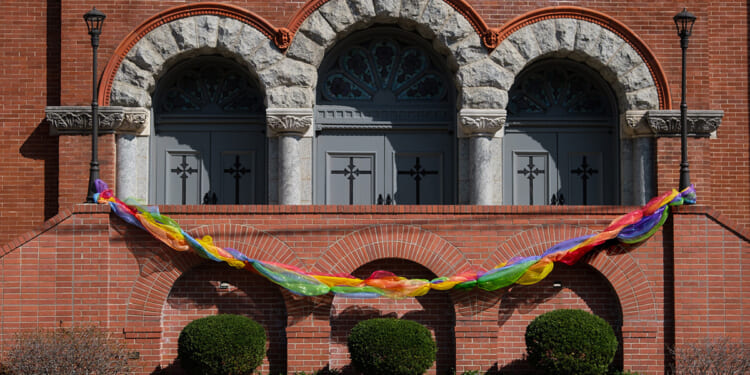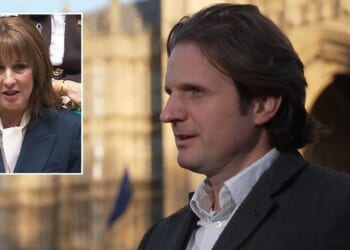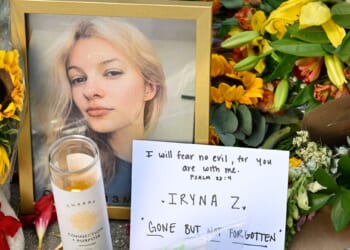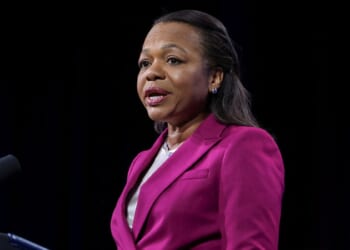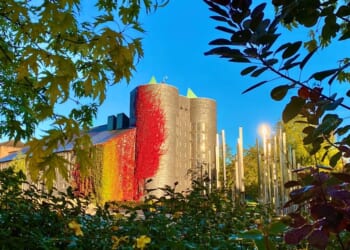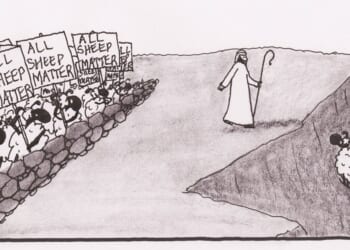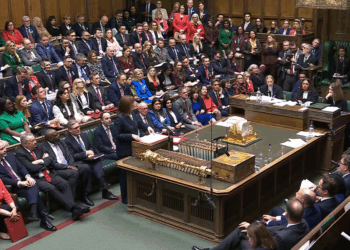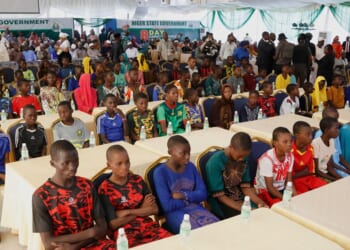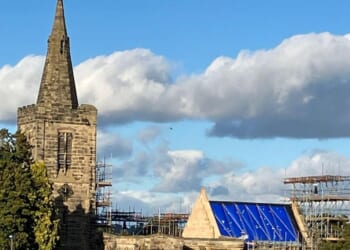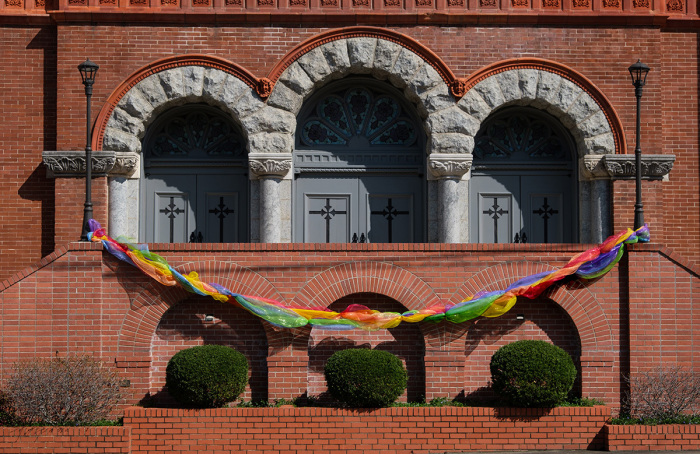
A United Methodist church in Texas painted its front steps in rainbow colors, following Gov. Greg Abbott’s directive to withhold funding from cities and counties that maintain LGBT rainbow crosswalks.
Oak Lawn United Methodist Church in Dallas, which calls itself an “inclusive” congregation, announced the decision in a statement. The steps were painted as a declaration of safety and dignity for LGBT individuals, not as a political protest, church leaders said.
“We are painting our front steps in the colors of the rainbow because silence is not love,” the church wrote in a Facebook post. “We want every person who passes by to know: you are safe, you are seen, you are beloved by God.”
Pastor Rachel Griffin-Allison told WFAA that painting the steps is “an act of sacred resistance in the face of what is happening in our state and in our country.”
Church members, led by congregant Robert Garcia Sr., began painting the steps on Tuesday morning, according to a release shared by Dallas Voice. Garcia estimated the project would take about two weeks, with multiple layers of paint applied before sealing the steps with a non-slip coat.
Griffin-Allison told Dallas Voice that painting the steps “is a visible witness to the gospel we preach: that every person is created in the image of God and worthy of safety, dignity and belonging.”
Gov. Abbott’s directive, issued earlier this month, targets rainbow crosswalks and similar political messaging in public spaces.
“Texans expect their taxpayer dollars to be used wisely, not advance political agendas on Texas roadways,” said the governor. “To keep Texans moving safely and free from distraction, we must maintain a safe and consistent transportation network across Texas.”
The governor’s statement followed remarks from U.S. Transportation Secretary Sean Duffy, who urged state leaders to remove political messaging and artwork from roads as part of a federal roadway safety initiative.
“Taxpayers expect their dollars to fund safe streets, not rainbow crosswalks,” Duffy posted to X, formerly known as Twitter.
In a letter on Oct. 8, the Texas Department of Transportation announced intentions to remove rainbow crosswalks across the state.
“Non-standard surface markings, signage, and signals that do not directly support traffic control or safety may cause confusion, reduce roadway uniformity, and impair the effectiveness of both human and automated vehicle navigation,” TxDOT Executive Director Marc D. Williams wrote in the letter. “Consistency in traffic control devices is essential to maintaining a safe and efficient transportation network.”
The debate around LGBT issues had been front and center in the UMC for several years as conservatives within the mainline denomination spoke out about liberal leaders within the denomination not enforcing the UMC’s rules on sexuality and marriage. As debates over LGBT inclusion continued, thousands of conservative congregations opted to leave the denomination altogether in recent years.
In April 2024, the UMC General Conference voted to repeal its long-standing ban on ordaining pastors in same-sex relationships. The measure passed with 692 delegates in favor and 51 opposed.
The restriction had been in place since 1984, barring the ordination of “self-avowed practicing homosexuals.” Enforcement had varied widely across regions, with some progressive UMC churches openly defying the rule in recent years.
The 2024 General Conference also voted to drop a ban on funding LGBT advocacy groups and eliminated punishment for pastors who officiate gay weddings.
In September, the UMC Africa College of Bishops reaffirmed its stance that marriage is defined as a union between a man and a woman.
While some UMC churches in the U.S. have long supported LGBT causes, UMC bishops in Africa have reaffirmed their stance that marriage is to be defined exclusively as a union of one man and one woman.
“This view is consistent with our biblical convictions, African traditions, and the laws of our respective nations,” the African bishops wrote in a statement. “We remain committed to practicing and teaching a holistic Christian sexual ethic rooted in Scripture and discipleship.”

